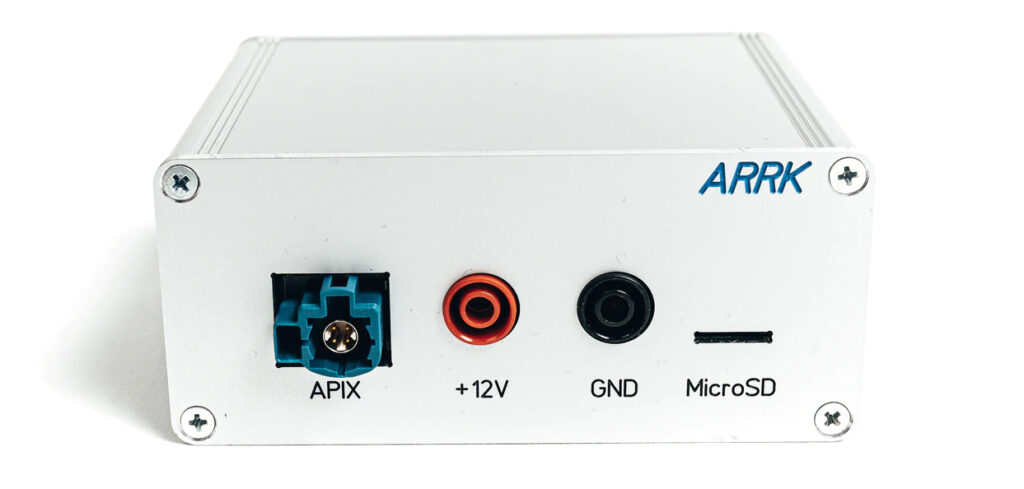Inova Semiconductors has expanded its APIX3 ecosystem with the addition of a compact HDMI-APIX3 converter from partner company Arrk Engineering.
APIX3 (Automotive Pixel Link) is a multichannel serializer/deserializer technology for high-resolution video applications in automotive platforms. It is most often found in infotainment and driver assistance systems (ADAS) and can simultaneously set up multiple display connections with a bandwidth of up to 12Gb/s, supporting HD as well as Ultra HD displays.
Inova says that the converter, developed by Arrk Engineering, enables the convenient display of video signals from any HDMI source on APIX3-compatible automotive displays. Additionally, the converter features flexible firmware that enables easy analysis of APIX3 displays as well as uncomplicated debugging of the component. The resolution of the HDMI interface can be adjusted automatically or manually to the respective APIX3 display. Furthermore, a complex control unit can be simulated by integrating driver functions. It is also possible to receive and evaluate MII Ethernet data.
“Inova is committed to continuously expanding the APIX3 ecosystem and therefore works closely with its partners,” said Markus Römer, field application manager at Inova Semiconductors. “The new HDMI-APIX3 converter from Arrk Engineering is another component in the APIX3 portfolio. It supports system developers as well as vehicle manufacturers in the development, validation and release of complex APIX3-networked infotainment solutions.”
The HDMI-APIX3 converter features a compact design with dimensions of 105 x 46 x 80mm and a low weight of 250g. On the front of the unit there is one interface each for USB, Ethernet and HDMI connection; on the back there are connections for the APIX3 component to be tested, a supply voltage of 12V DC and an exchangeable SD card. The converter’s power consumption is 2.7W.
The integrated microcontroller controls all important functions of the APIX3 converter. For example, it coordinates the display data channel of the HDMI interface so that the video data is sent in the format for the connected display. This means that the resolution of the HDMI interface can be adjusted at any time during runtime, making it easy to play back the desired image content on the display device in order to carry out extensive tests and analyses.
The company says there are many possible uses for the new converter. In display development, it is suitable as a general measurement technology, a video source or, for example, for durability testing of displays. Rapid prototyping or targeted HMI development needs to be precisely adapted to the respective application environment, so the converter can also be deployed for the uncomplicated review of new concept ideas from OEMs. Since the HDMI-APIX3 converter is downward compatible with the APIX2 interface, it can also be used with displays of the previous generation.
“This video converter has already been used hundreds of times by customers and is the result of a close and long-standing cooperation with Inova and our customers,” explained Kai Walz, group leader of electronics product development at Arrk Engineering. “We are always pleased when our customers surprise us with new use cases that we hadn’t even thought of, and we are happy to make customer-specific adjustments if necessary.”



